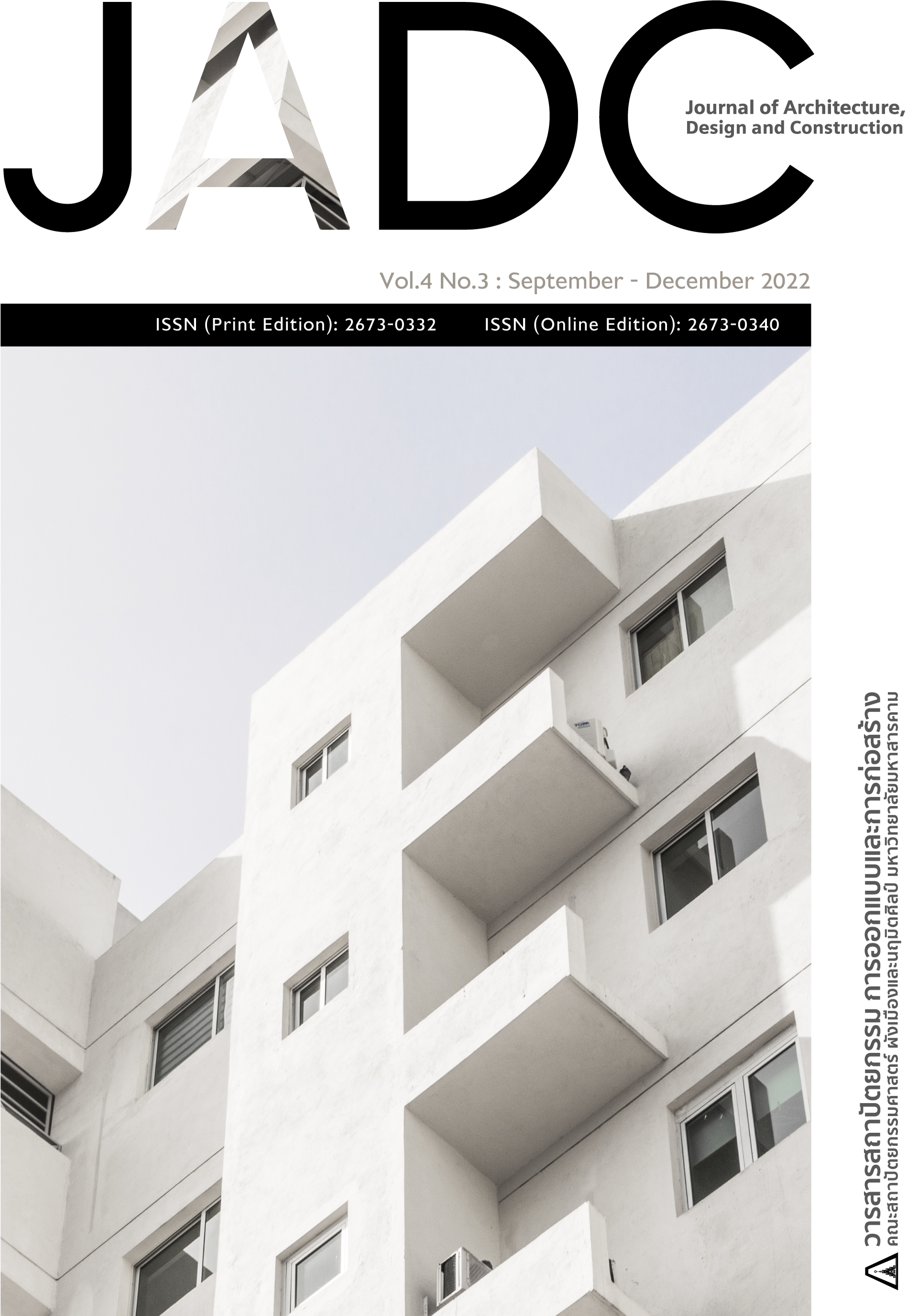ความสัมพันธ์ของการจัดระเบียบเชิงพื้นที่ระหว่างการควบคุมผู้ต้องขังกับการบำบัดผู้ป่วย
Main Article Content
บทคัดย่อ
This article focuses on the study and conceptual conclusion of the spatial organization between Controlling of Prisoners and Healing of Patients. To find the correlations through the architecture of prisons and hospitals that have the characteristics of using the two spatial patterns mentioned above. During the 18th century, it was found that the architectural style of prisons focused on the use of power to control prisoner. There is a beginning of a spatial organizational scheme that is similar to a hospital architecture that focuses on treatment. Therefore, the related history has been studied through the Architecture (Historical Survey) which is linked to the nature of the unit division of the area. evaluating patterns in the construction of enclosed spaces How to observe through space in different parts to understand the link between the two types of architecture.
From using the comparative method, the study data revealed that the characteristics of both types of architecture, although similar in specific aspects of spatial arrangement. But the factors affecting the concept of how to use power to “Controlling” and “Healing” are intended for different users and occupants occupants. That is to say, both areas (Controlling and Healing ) have high concepts and techniques of spatial organization that can be adjusted and concentrated according to the measures applicable in each context. Such conceptual ideas therefore have the effect of defining the details of space differently.
Downloads
Article Details

อนุญาตภายใต้เงื่อนไข Creative Commons Attribution-NonCommercial-NoDerivatives 4.0 International License.
บทความที่ได้รับการตีพิมพ์เป็นลิขสิทธิ์ของวารสารสถาปัตยกรรม การออกแบบและการก่อสร้าง คณะสถาปัตยกรรมศาสตร์ ผังเมืองและนฤมิตศิลป์ มหาวิทยาลัยมหาสารคาม


